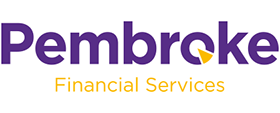School fees are rising faster than the rate of inflation, creating financial challenges for parents who want to educate their children privately.
Private school fees rose by 3.7% this year, according to the latest figures from the Independent Schools Council, with the average independent day school charging £14,289 a year in 2018. By contrast inflation, as measured by the consumer price index, was at 2.1% for April 2019.
The question for parents is how to fund rising fees. Some families may be able to meet costs out of earnings, but many parents will need to build reserves.
When planning to accumulate a school fees fund:
1. Plan ahead
The sooner you start, the better chance you have of building a decent nest egg by whatever age your children will enter the private system.
2. Make the most of tax-breaks
ISAs allow each parent to save up to £20,000 a year, tax free. Equity ISAs may be suitable for those with a 10-year plus savings horizon. Those with shorter time frames should stick with cash.
3. Get family involved
Relatives, especially grandparents, may be willing to make regular payments towards fees. This can potentially reduce their inheritance tax liability and one-off payments would normally be disregarded providing the donor survives a further seven years.
4. Ask about bursaries and scholarships
The ISC say the number of pupils being helped by these schemes has risen by 3% over the past year.
5. Remember insurance
Income protection insurance, for example, could cover the fees if you were too ill to work.
Of course, for parents with children at state schools, these savings tips can also help meet future higher education costs.
If you are thinking about paying for your child’s education then taking professional independent financial advice can help you plan effectively for the years which lie ahead – please just get in touch to discuss your options.
Please Note: The value of your investments and the income from them can go down as well as up and you may not get back the full amount you invested. Past performance is not a reliable indicator of future performance. Investing in shares should be regarded as a long-term investment and should fit in with your overall attitude to risk and financial circumstances. The FCA does not regulate tax advice. Levels and bases of taxation and tax reliefs are subject to change and their value depends on individual circumstances. Tax laws can change.
















